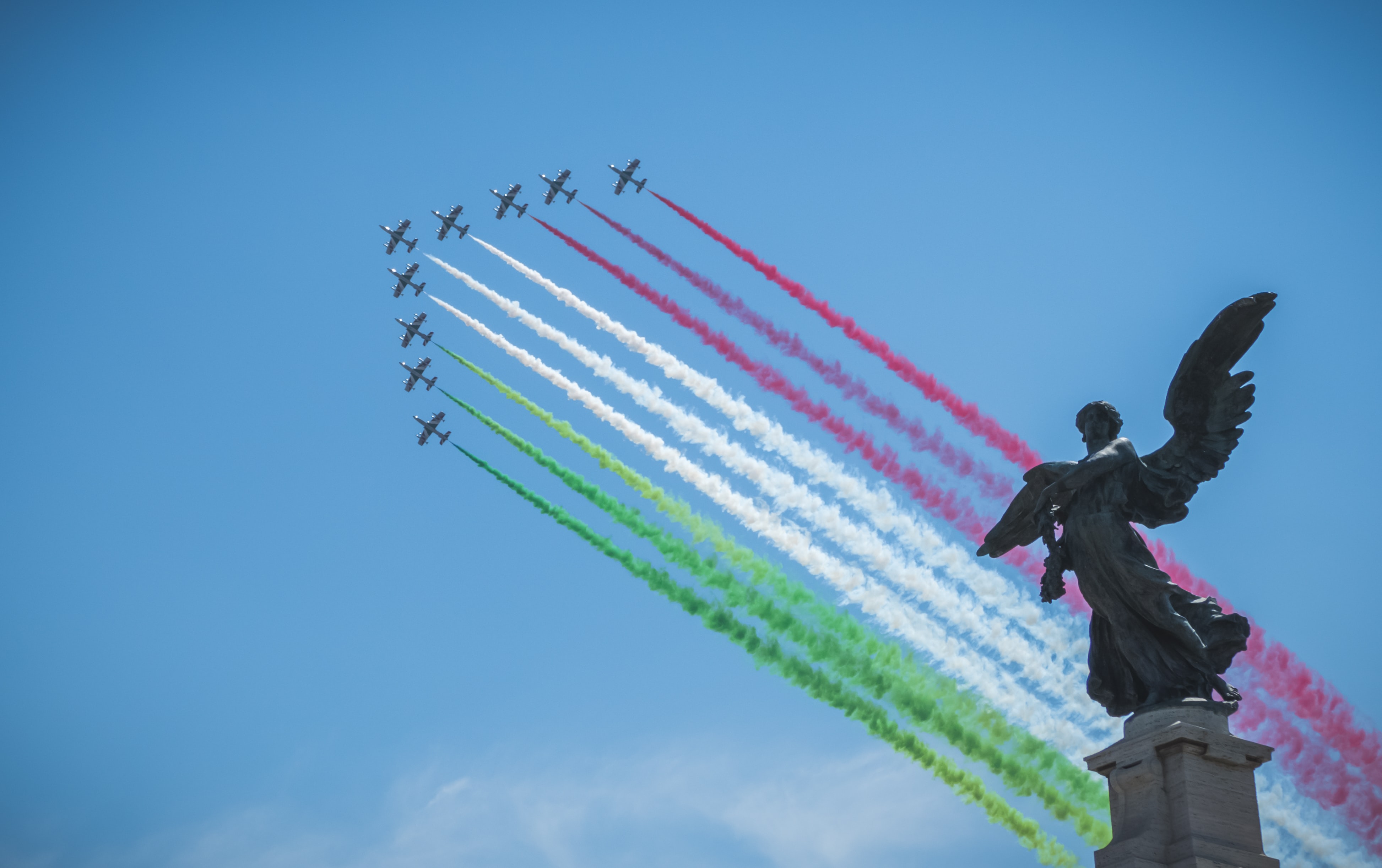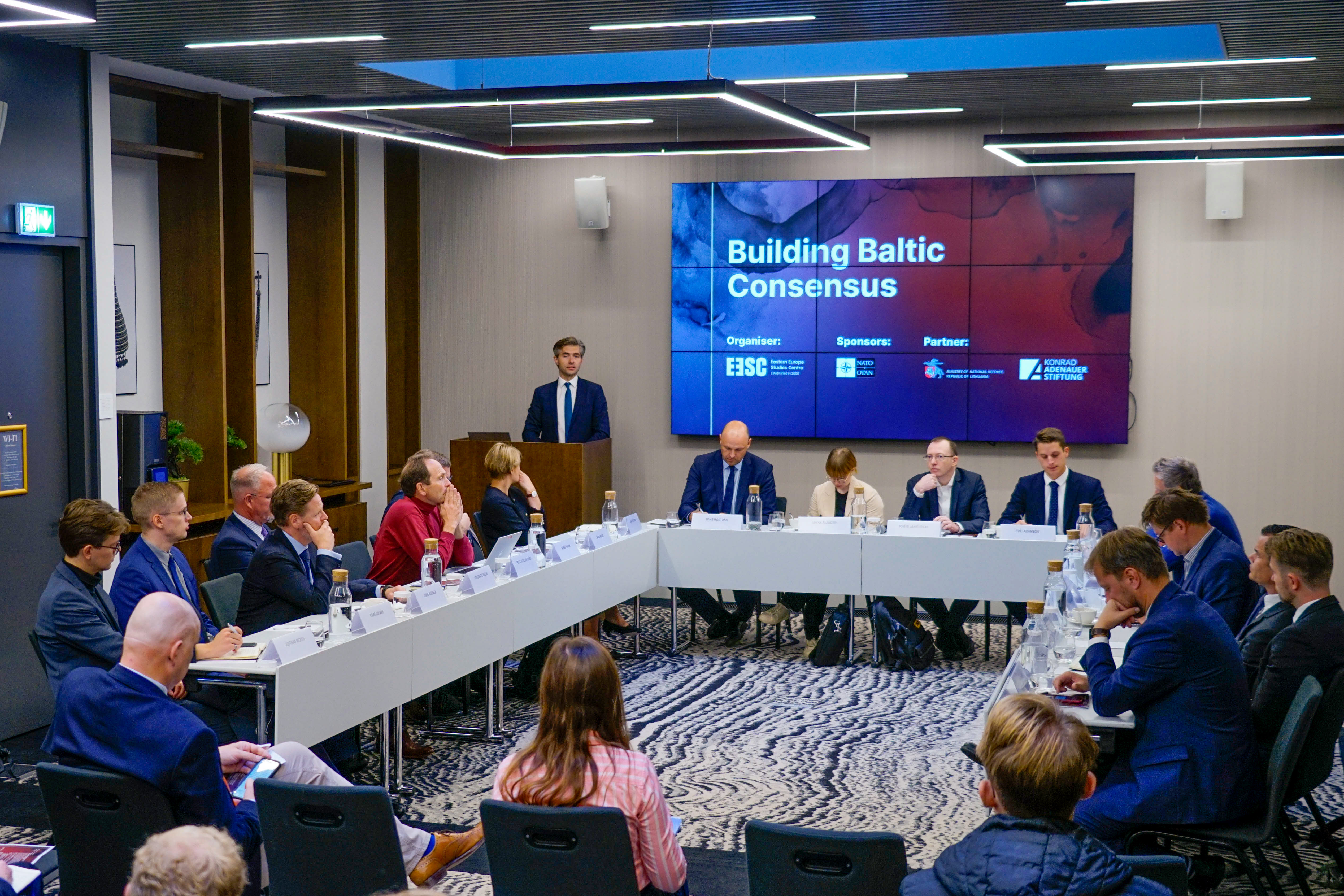You can find the PDF text version by clicking this link.
Dr. Lina Strupinskienė talks about this year’s elections in the Western Balkans, struggles for influence in the region between major powers, and opportunities for closer cooperation with Lithuania in an interview with Justinas Kulys, a policy analyst at the Eastern Europe Studies Centre.
About the author: Lina Strupinskienė is an Assistant Professor at the Institute of International Relations and Political Science, Vilnius University, who teaches courses on violent ethnic conflict analysis and transitional justice. She has a PhD in Political Science from Vilnius University and a MA degree in Conflict Studies and Human Rights from Utrecht University. Lina is also a member of the Western Balkans expert pool at the European Centre of Excellence for Countering Hybrid Threats based in Helsinki, Finland.
Quite a few important elections took place in the Western Balkans this year. Given the recent domestic policy shifts in many of its countries, what sort of changes should the region be preparing for?
This year was an election year in the Western Balkans. Almost every country held general elections and several of them are of importance. To begin with, the Serbian election was important because the country is seen as the frontrunner in the EU integration race. The results are worrying, to say the least, as they indicate a substantial decline in democracy. President Aleksandar Vučić’s party completely marginalized the opposition and secured a 3/4 majority in the parliament, which is sufficient to amend the country’s constitution. Serbia is likely to follow in the footsteps of Hungary and Poland, whose regimes use the country’s main body of law to serve their own needs. This sends a serious signal to the EU for two reasons: first, were Serbia to join the EU without a democratic tradition firmly in place, it may well be too difficult to establish it later. Second, Euroscepticism is increasingly taking root among Serbia’s progressive opposition forces, whose criticism of the EU is not unfounded given its neglect of ever-stronger authoritarian leanings and preference for stability over democratic values.
The early parliamentary elections in the Republic of North Macedonia also deserve a closer look. PM Zoran Zaev has built his political career on the promise to lead his country towards joining the EU and NATO. He put forward a number of bold, pro-democratic reforms, also ensuring implementation of the historical agreement with Greece that required changing the country’s name. In light of all this, France’s veto on EU membership talks was a major blow to him personally and the country’s society at large. Nevertheless, his party managed to win the elections and form a coalition government that remained largely unchanged. This sends a positive message, because the Macedonian people remain on board with the country’s pro-European course.
Another relevant election took place in Montenegro. President Milo Đukanović’s party lost the election after thirty years in power. According to Đukanović’s critics, Montenegro is an example of a captured state, with rampant corruption, political patronage, and ties to the criminal underworld. What this election showed, however, was that it is nonetheless possible to challenge the ruling elites. This surprise result is perhaps best explained through strong popular disapproval of the new law on religion, which could potentially lay the groundwork for nationalizing the property of some of the country’s monasteries. The opposition is set to repeal the law passed with Đukanović’s blessing as soon as possible and protect the Orthodox Church. Montenegro’s foreign policy is not expected to undergo any significant changes.
Overall, the region saw no major shifts, and democratic principles continue to be very much at risk. Voter turnout was at a record low in many countries, partly due to the pandemic, but also the palpable apathy towards the same old politics with no real change. Being the key player in the region, the EU should be raising these issues in no uncertain terms. In fact, recent progress reports of the EU Commission are doing just that. It is now important that these turn into concrete actions, as the position “you pretend to reform and we pretend we are going to let you join the EU” is unsustainable. The tools made available by the EU’s new enlargement methodology should be meaningfully used to reward progress and punish deliberate inaction or backsliding.
To what extent could the Western Balkans’ (un)successful EU integration efforts affect the EU’s enlargement processes in the future?
The unprecedented exit of a key EU member state changed the internal distribution of power and influence among the remaining members. France and Germany were pushed back to the EU’s center stage and are currently competing for power. This is also evident in disagreements over the membership of the Western Balkans as they speak to different visions of the EU’s future.France and French President Emmanuel Macron speak of the EU as a union in crisis, calling for urgent internal reforms before any future enlargement. Only when the EU becomes a deeper, less divided, and smoothly functioning union can it accept new member states. Behind France’s vision lies the unwillingness of the French electorate to let in immigrants from the region and a clear understanding among the political elites that enlargement into the Balkans would be useful, first and foremost, to Germany, as it would shift the center of power eastward. Germany, meanwhile, has historical ties with the region and a sizable Balkan diaspora. This partially explains why Germany calls for integrating the bloc’s neighbors, instead of leaving them in the sphere of influence of other hostile powers. For now, it seems as if France’s veto was no more than a temporary obstacle. The crisis is now under control and accession talks with North Macedonia and Albania have begun, but it remains unclear how quick and how successful the reforms will be, as they generally require a lot of time and effort.
Donald Trump’s administration keeps a very close eye on the negotiations between Serbia and Kosovo. Is this the full extent of US involvement in the region or are there any signs that it is going to become more active in the Western Balkans?
European integration of the Western Balkans has long been seen as the best guarantee for peace, progress and prosperity in the region. However, the 2013-2014 Ukraine crisis signaled that the processes is stalling. At the same time, Russia was becoming more assertive and aggressive in opposing Western influence in the wider region. Thus, the US returned and became more actively involved. Undoubtedly, one of the key issues for the US is indeed negotiations between Serbia and Kosovo, because Kosovo makes Serbia very dependent on support from Russia. It was for this reason that the US assigned two high-ranking officials to oversee the Western Balkans, and Serbian President Vučić and Kosovo Prime Minister Hoti were invited to visit the White House. Yet Trump’s behavior during their visit implies that to him this is an issue of little importance. It seems that the goal was not so much a sustainable solution, but a quick diplomatic victory before the election. The issue of Kosovo’s recognition remains unresolved, and economic aid alone cannot help in any substantial way. Especially given the high likelihood of the money ending up in the pockets of corrupt officials due to rampant corruption in the region.
China appears to have become a major partner of many Balkan states. It invests money with no strings attached, it would seem. What will its role in the region look like in the future? In what ways can the West compete?
China is a very attractive partner indeed, as it demands nothing in terms of values or ideology and offers easy money. However, Chinese investments tend to lead to sour outcomes in the long run, primarily due to China’s problematic treatment of workers and the environment. Over the last few months alone, Chinese companies have been involved in two ecological disasters in the region: one in Smederevo, Serbia (when the entire city and the surrounding areas were covered by black dust from the steel mill controlled by China) and one in Montenegro (when highway construction waste was dumped into one of the region’s most pristine rivers; the construction was carried out by the China Road and Bridge Corporation, one of China’s largest state-owned companies). Montenegro also illustrates the second issue with Chinese influence, given that over 40 per cent of Montenegro’s external debt is owned by China. China invests in big infrastructure projects with countries unable to fund them from the state budget alone and then lends the money to cover the difference with long-term rental agreements for the infrastructure or sky-high interest rates in return. Such behavior is commonly referred to as “debt-trap diplomacy.”
Russia is an active player in the region, yet it seems that recently its influence has been weakening. Can Russia’s role in the Western Balkans still be described as significant?
I would not say that Russia’s influence in the region has been weakening. There has been, however, some turbulence there, especially with relations between Russia and Serbia. We may remember Vučić’s visit in Washington and the bitter exchanges on social media between some of the highest-ranking officials that ensued, or Serbia’s accusations against pro-Russian actors for inciting protests against re-imposing quarantine measures. This seems to go against traditional Serbian-Russian brotherhood and partnership. However, I would say that this is more of a tactical shift, which indicates that President Vučić feels vulnerable and is trying to stay in power by making pragmatic decisions.
Generally speaking, Russia was and remains active in the region. Without investing substantial resources, it manages to successfully exploit dissatisfaction among local marginalized groups, stoking tensions via cultural diplomacy and targeted media campaigns. I believe that the exact same tactic will continue to be used in the future, since Russia is unable to compete with the region’s ties to the EU in terms of economic, military, or political cooperation. The EU is Serbia’s largest donor, having provided over EUR 3.6 billion over the last 18 years in support for legal reforms, the public sector, social development, environmental protection and agriculture.
What is Lithuania’s interest in the Western Balkans? What kind of initiatives, perhaps even country-specific initiatives, could Lithuania pursue more actively?
The Western Balkans offer Lithuania an excellent opportunity to punch above its political weight. After all, we have a fair amount of transition experience, which could be put to good use in the region. We too transitioned from socialism and know only too well the remnants of it – the looming feelings of apathy and disappointment, the prevalent corruption and political patronage, the weakness and incompetence of state institutions, the deficit of trust. Our societies are similar, people’s fears and struggles are similar, and their vulnerabilities are therefore similar, too. Lithuania handled them pretty well, which places us in a unique position to take initiative, cooperate and offer advice.


